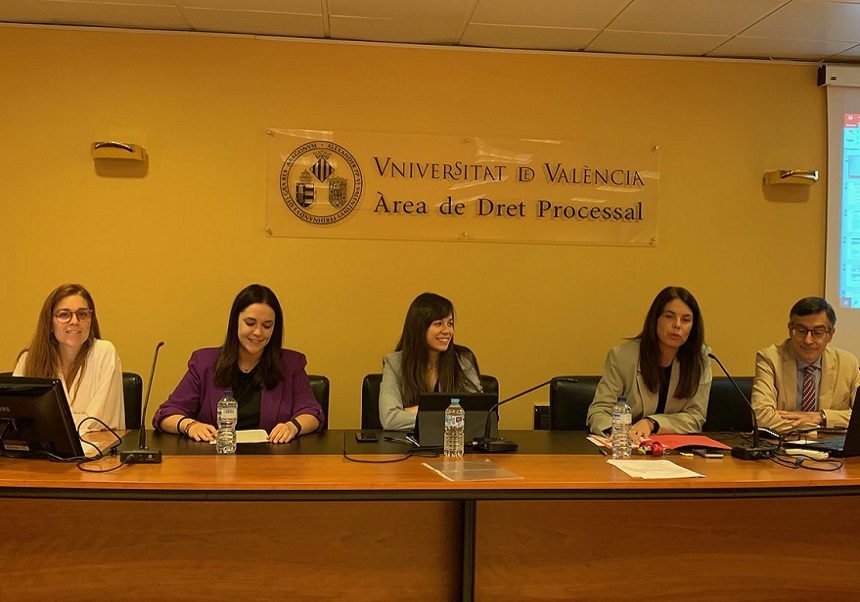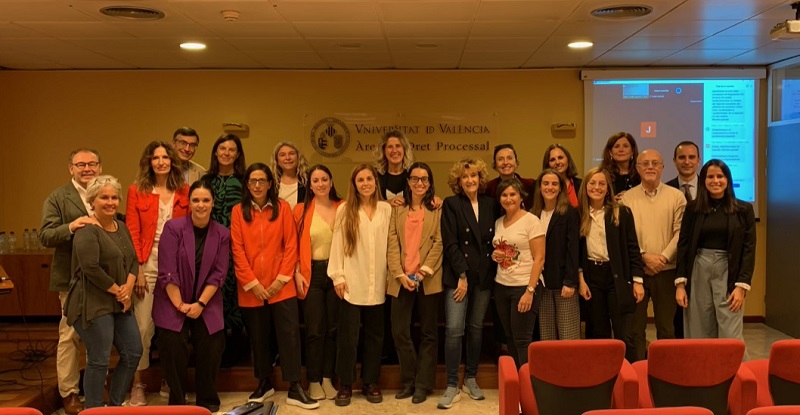
The international congress MASC, to be or not to be? (MASC: Alternative Methods for Conflict Resolution) took place at the Faculty of Law UV and was led by Silvia Barona Vilar and organised by the Institutional Chair for Legal Mediation Culture UV-GVA and in collaboration with the UV Ombudsperson’s Office.
At the Congress, centred on MASC (alternative methods for conflict resolution, according to the Spanish acronym), there were more than 30 lecturers, given mostly by young researchers, providing a diverse view on the multiple systems of extra-jurisdictional conflict resolution that are established in the legal world.
Within these systems mediation acts as a fundamental axis for take-off and consolidation, both in general terms in national and international conflicts and in sectoral conflicts.
The presentations of both national and international speakers allowed for an interesting discussion, and the contributions during the congress will be collected in a publication directed by the Director of the Congress, Prof. Dr. Silvia Barona Vilar, at Editorial Tirant lo Blanch.
The congress was opened by Silvia Barona Vilar, head of the Chair for Legal mediation Culture of the UV. The opening conference was led by Carlos Esplugues Mota, also from the UV, who highlighted the key role of the United Nations Commission on International Trade Law (UNCITRAL) in promoting mediation and arbitration. The day also included a discussion panel where experts discussed the relevance of the Alternative Methods for Conflict Resolution in a global, social and digital context. In addition, there was an interesting dialogue on the situation of the Alternative Methods for Conflict Resolution in Latin America, moderated by Carlos Esplugues.
On the second day of the congress, the focus was centred on questions related to mediation and restorative justice in complex situations, such as the evolution of MASC in digital society. Both the importance of well-established models was highlighted and the application of MASC in criminal matters was explored. The event also addressed the use of MASC in cross-border cases, highlighting the relevance of this modality at the international level. With a diverse programme and renown experts, this congress offered a holistic view on the Alternative Methods for Conflict Resolution and their influence on the current legal landscape.
This international congress provided a platform for discussion and exchange of ideas on relevant topics in the field of MASC, offering a valuable opportunity for the legal and academic community.
Participants
|
|





